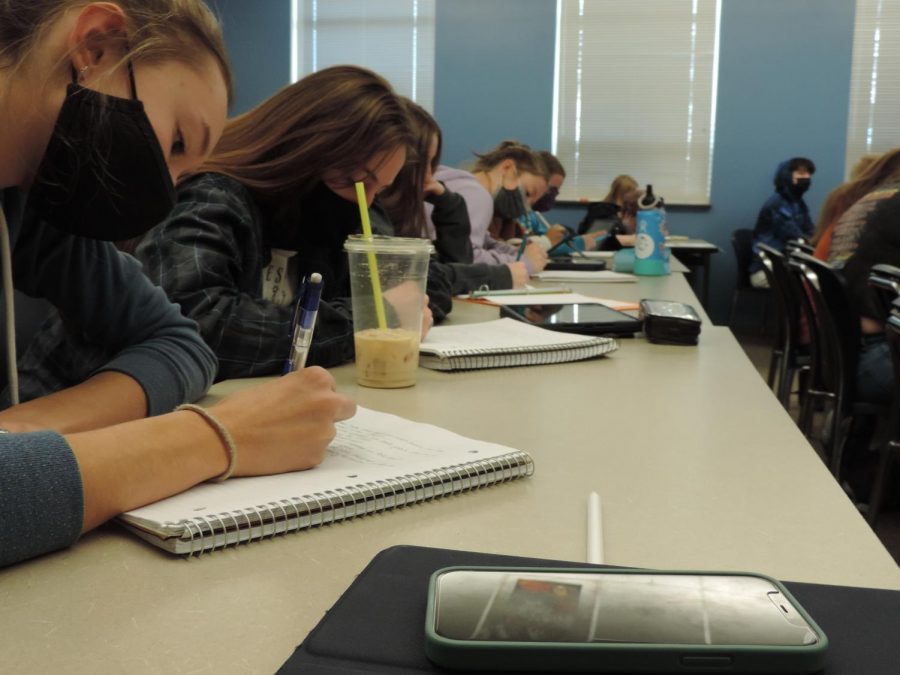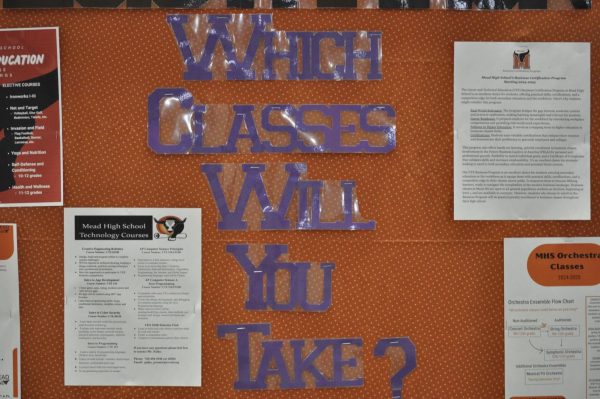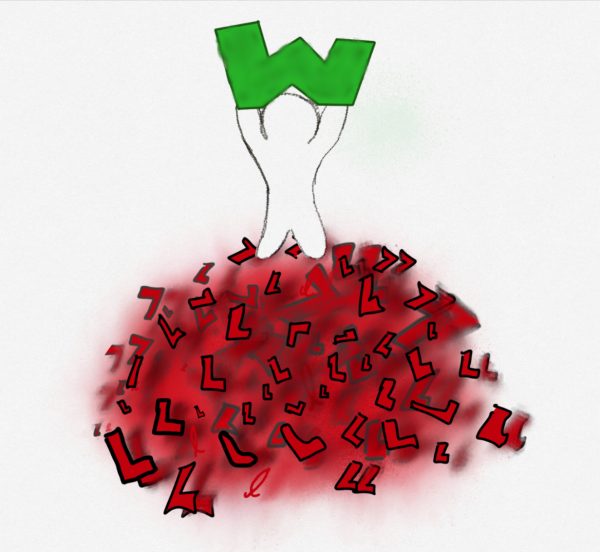Being successful on finals requires review and study strategy
Stuck studying before finals? Here’s how MHS teachers recommend studying to be most successful
Students write information in their notebooks during Mr. Parsons’ class.
December 14, 2021
Studying before finals can seem overwhelming and never ending. If you’re feeling stuck, who better to get advice from than those who are handing out the final exams?
Ms. Emberg offers study guides for students, which she said can be incredibly helpful when getting ready to finals.
“If your teacher provides a study guide, I would highly recommend working through the study guide, probably more than once,” she said.
She continued, saying that her strategy in high school was to go through her study guides and highlight topics she knew the first time around and mark topics she needed to work on. Once she studied those key topics, she would look back through and see if she could recall information without looking at her notes.
“I would suggest [not] just study[ing] one time,” Ms. Emberg said. In order to solidify content and memorization, “go back and try again after you’ve studied”.
Ms. Durkin suggests to “break up your studying, so that you don’t get overwhelmed with how long you’re studying for finals”.
She said that organization is key when it comes to studying.
Ms. Krack said her “number one piece of advice for studying for finals is to make sure that you’re in every single class [beforehand]… because I guarantee teachers have worked in time to review or they’re going over concepts that will appear on their finals”.
Along with study guides, she said she used to “take the questions on the study guides and make note cards” and then work with a group of her peers to go through and quiz each other on the note cards.
“Constant repetition and review [is key]. Because studying isn’t just looking at the study guides, it’s checking yourself. It’s quizzing yourself, it’s picking five questions, writing them on a separate sheet of paper, and then testing yourself without looking at your notes to see if you can answer them correctly,” said Ms. Krack.
Mr. Root advised that students “complete all the review guides that we teachers give you, and make sure that you answer in depth”. He said that briefly answering study guide questions “doesn’t really prepare you”.
Mr. Root said, “Go into depth and read everything you know, and then find out everything about that.”













DJ Gallegos • Dec 16, 2021 at 9:33 am
This is a great way to do it, ill make sure to tey it out